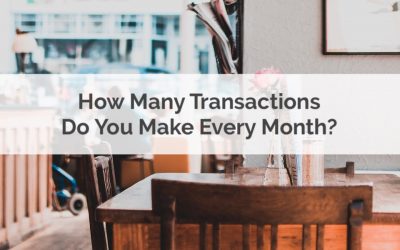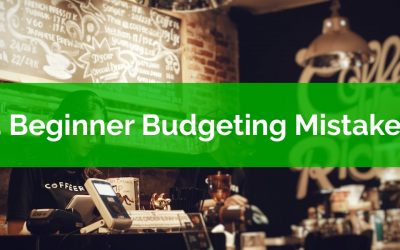Congratulations! You’re on the waitlist!
We will e-mail you before the bootcamp launches for an exclusive preview.
Check out our latest blog posts…
It’s Not Just How Much You Spend, It’s How Many Transactions You Make
Lots of us track our spending. Tracking your spending is one of those foundational personal finance habits. It’s not something that comes naturally. This is a habit that requires work. Sure… you can reach your financial goals without tracking your spending, but it makes it harder, and why would you make things harder?
Tracking your spending doesn’t have to be difficult. At PlanEasy.ca all of our clients, including myself, use a simple online form to track our spending. Make a purchase, pull up the form, enter the amount and the category and hit submit. Easy.
All that data gets put in a neat little summary. It shows you the typical things like spending month-to-date, spend vs budget, total spend, etc.
But one of the neat things we included in our summary is how many transactions you make. How many transactions you’ve made over the last 30 days. The average number of transactions per day. How many “no spend” days you’ve had and your longest “no spend” streak.
I’m a firm believer that a lot of our spending is driven out of habit. You walk by a certain store, coffee shop, restaurant and out of habit you go in and you buy something.
Spending habits are easy to form. There is a clear “cue, routine, reward” cycle. The cues are everywhere in the form of advertising, marketing, sales, promotions, etc. The routine is simple, pull out your credit card and buy something. The reward is that immediate satisfaction you get from your purchase. It’s addictive.
Spending habits are hard to break. The way to break them is not by tracking how much money you spend, it’s by tracking how many times you spend money. It’s by tracking how many transactions you make each month, week, or day.
The more transactions you make, the more you reinforce your spending habits, and the harder they are to break.
Instead of focusing on how much you spend, try focusing on the number of transactions you make. Try to go for “no spend” streaks of 2, 3, 4, 5+ days in a row, or try going cold turkey and do a no spend month!
As you start to reduce the number of transactions you’ll also start to break those spending habits and you’re definitely going to be spending less each month.
4 Beginner Budgeting Mistakes
No one was born budgeting. It’s not an innate skill we possess. Babies don’t instinctively learn how to walk, talk and budget. There aren’t any kids’ shows about budgeting. In high school we don’t learn how to budget. Maybe you had a part time job, but I’m guessing you didn’t budget.
I’m willing to bet that for most of us our first experience with a budget was when we were already adults.
We all need to start budgeting at some point and when we do, we all make mistakes. Budgeting isn’t easy. It takes skill and practice to be a good budgeter. It might take a few attempts to figure out a good budget for your unique situation.
Remember, no one was born a budgeter, it’s a skill you need to work on. But there are definitely a few beginner budgeting mistakes that you can try to avoid.
How Much Life Insurance Do You Need?
How much life insurance do you need? Just enough, that’s how much.
Buying too much life insurance is a common problem. It’s an understandable problem, but a problem none the less. Buying life insurance is a tough decision. It’s emotional and it’s easy to get away from the cold hard facts.
If it wasn’t hard enough, insurance companies also make it very enticing to buy more life insurance than you need. The price for the next $250,000 of life insurance is usually quite a bit less than the first $250,000. This makes it very appealing to over-insure yourself. You think “why not buy an extra quarter million, it’s only an extra $15 per month?”
But buying life insurance rarely aligns with someone’s personal values. No one wants to buy life insurance. Life insurance isn’t fun, it doesn’t bring you joy, and the only time it becomes useful is when you’re no longer around. What you value about life insurance is the security it provides. So why buy more than you absolutely need?
When buying life insurance, you want to buy just enough to provide that security and not a penny more. So how much life insurance do you need?



